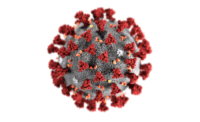Jeffrey Levi, Ph.D., executive director of Trust for America's Health (TFAH) testified before the U.S. House Committee on Energy and Commerce’s Subcommittee on Health at their hearing entitled, “H1N1 Preparedness: An Update of Vaccine Production and Distribution.” According to a TFAH press release, Levi acknowledged the criticism associated with the current H1N1 vaccination program, but highlighted the progress authorities have made to efficiently distribute vaccine.
An excerpt from Levi's testimony is below:
"While I understand that today's hearing is a result of considerable frustration with the current H1N1 vaccination program, I want to emphasize four critical points:
"The public health system at all levels of government has moved with remarkable speed in getting vaccines to as many Americans as supply has permitted. We have moved as fast as or faster than any other country in the world. The United Kingdom, for example, just began its vaccination campaign in late October — even though there is more vaccine production capacity in the U.K. than in the U.S. Similarly, the French vaccination campaign did not begin until last week.
"The vaccine is well matched to the circulating virus. It is proven to be safe and effective in clinical trials. The H1N1 vaccine offers the best protection against the disease available to the American public.
"Whatever our concerns with production capacity are today, had the federal government not made the multi-billion dollar investment in enhanced vaccine production capacity since 2005, we would be in far worse shape. The limits on supply we are experiencing today are the limits imposed by the science and technology. We are depending on an inherently unpredictable technology and we are, unfortunately, still a few years away from U.S. approval of newer, more reliable technology.
"The federal government has been remarkably transparent with the American people about this pandemic since it began last spring. The federal effort appears to be well coordinated with all cabinet and subcabinet officials working from the same playbook. Public health officials have leveled with the American people — making appropriate adjustments in recommendations as our understanding of the nature of the pandemic has evolved. The same has held true as supply issues have arisen. While I cannot speak to when senior Administration officials should have known about serious supply problems, when they did become aware of them, they adjusted policy and messaging appropriately. This has led to some understandable confusion among the public, but it has reflected an honest attempt to reflect the current state of knowledge.
"The 2009 H1N1 influenza pandemic has both shown our government at its best and highlighted many of the ongoing weaknesses in our public health system. As we continue to ramp up our response to this pandemic — and provide the protection the American people rightfully expect their government to make available — we must also take the steps necessary to assure that when the next public health crisis occurs, a stronger system is in place and capable of responding quickly, effectively, and nimbly.”
For the past five years, TFAH has advocated for increased investments in preparedness and response to a potential influenza pandemic. The Trust has published numerous reports focused on these issues, including two related to the current H1N1 pandemic.
Trust for America's Health testifies before Congress on H1N1 vaccine distribution (11/19)
Looking for a reprint of this article?
From high-res PDFs to custom plaques, order your copy today!




